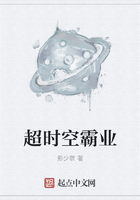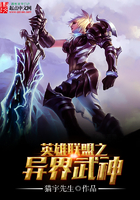And in his heart of hearts Martin understood the situation only too well, as he leaned back and gloated at Von Schmidt's head, in fancy punching it well-nigh off of him, sending blow after blow home just right - the chuckle-headed Dutchman! One thing he did like about him, however. Poor as he was, and determined to rise as he was, he nevertheless hired one servant to take the heavy work off of Marian's hands. Martin talked with the superintendent of the Asa agencies, and after dinner he drew him aside with Hermann, whom he backed financially for the best bicycle store with fittings in Oakland. He went further, and in a private talk with Hermann told him to keep his eyes open for an automobile agency and garage, for there was no reason that he should not be able to run both establishments successfully.
With tears in her eyes and her arms around his neck, Marian, at parting, told Martin how much she loved him and always had loved him. It was true, there was a perceptible halt midway in her assertion, which she glossed over with more tears and kisses and incoherent stammerings, and which Martin inferred to be her appeal for forgiveness for the time she had lacked faith in him and insisted on his getting a job.
"He can't never keep his money, that's sure," Hermann von Schmidt confided to his wife. "He got mad when I spoke of interest, an' he said damn the principal and if I mentioned it again, he'd punch my Dutch head off. That's what he said - my Dutch head. But he's all right, even if he ain't no business man. He's given me my chance, an' he's all right."
Invitations to dinner poured in on Martin; and the more they poured, the more he puzzled. He sat, the guest of honor, at an Arden Club banquet, with men of note whom he had heard about and read about all his life; and they told him how, when they had read "The Ring of Bells" in the TRANSCONTINENTAL, and "The Peri and the Pearl" in THE HORNET, they had immediately picked him for a winner.
My God! and I was hungry and in rags, he thought to himself. Why didn't you give me a dinner then? Then was the time. It was work performed. If you are feeding me now for work performed, why did you not feed me then when I needed it? Not one word in "The Ring of Bells," nor in "The Peri and the Pearl" has been changed. No; you're not feeding me now for work performed. You are feeding me because everybody else is feeding me and because it is an honor to feed me. You are feeding me now because you are herd animals; because you are part of the mob; because the one blind, automatic thought in the mob-mind just now is to feed me. And where does Martin Eden and the work Martin Eden performed come in in all this? he asked himself plaintively, then arose to respond cleverly and wittily to a clever and witty toast.
So it went. Wherever he happened to be - at the Press Club, at the Redwood Club, at pink teas and literary gatherings - always were remembered "The Ring of Bells" and "The Peri and the Pearl" when they were first published. And always was Martin's maddening and unuttered demand: Why didn't you feed me then? It was work performed. "The Ring of Bells" and "The Peri and the Pearl" are not changed one iota. They were just as artistic, just as worth while, then as now. But you are not feeding me for their sake, nor for the sake of anything else I have written. You're feeding me because it is the style of feeding just now, because the whole mob is crazy with the idea of feeding Martin Eden.
And often, at such times, he would abruptly see slouch in among the company a young hoodlum in square-cut coat and under a stiff-rim Stetson hat. It happened to him at the Gallina Society in Oakland one afternoon. As he rose from his chair and stepped forward across the platform, he saw stalk through the wide door at the rear of the great room the young hoodlum with the square-cut coat and stiff-rim hat. Five hundred fashionably gowned women turned their heads, so intent and steadfast was Martin's gaze, to see what he was seeing. But they saw only the empty centre aisle. He saw the young tough lurching down that aisle and wondered if he would remove the stiff-rim which never yet had he seen him without.
Straight down the aisle he came, and up the platform. Martin could have wept over that youthful shade of himself, when he thought of all that lay before him. Across the platform he swaggered, right up to Martin, and into the foreground of Martin's consciousness disappeared. The five hundred women applauded softly with gloved hands, seeking to encourage the bashful great man who was their guest. And Martin shook the vision from his brain, smiled, and began to speak.
The Superintendent of Schools, good old man, stopped Martin on the street and remembered him, recalling seances in his office when Martin was expelled from school for fighting.
"I read your 'Ring of Bells' in one of the magazines quite a time ago," he said. "It was as good as Poe. Splendid, I said at the time, splendid!"
Yes, and twice in the months that followed you passed me on the street and did not know me, Martin almost said aloud. Each time I was hungry and heading for the pawnbroker. Yet it was work performed. You did not know me then. Why do you know me now?
"I was remarking to my wife only the other day," the other was saying, "wouldn't it be a good idea to have you out to dinner some time? And she quite agreed with me. Yes, she quite agreed with me."
"Dinner?" Martin said so sharply that it was almost a snarl.
"Why, yes, yes, dinner, you know - just pot luck with us, with your old superintendent, you rascal," he uttered nervously, poking Martin in an attempt at jocular fellowship.
Martin went down the street in a daze. He stopped at the corner and looked about him vacantly.
"Well, I'll be damned!" he murmured at last. "The old fellow was afraid of me."














